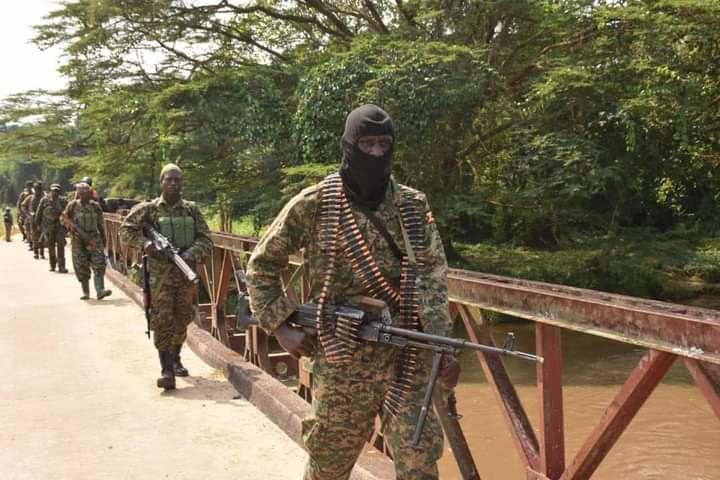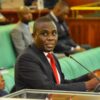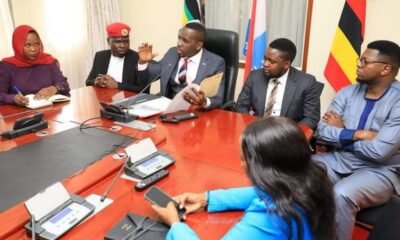News
Why Ugandan troops in DR Congo may worsen Rwanda relations

UPDF Soldiers crossing River Semliki in DRC
In 1996-1997, in what came to be known as the “First Congo War”, Uganda and Rwanda, joined by several other former African guerrilla movements under the Alliance of Democratic Forces for the Liberation of Congo-Zaire (AFDL), invaded DR Congo and uprooted the country’s long-serving president, Mobutu Sese Seko, and succeeded him with Laurent Kabila.
In 1998, following the fallout with Kabila and other former AFDL coalition members, the pair launched a second rebellion – this time aimed at ousting Kabila. With joint military operations, Uganda and Rwanda simultaneously poured hundreds of soldiers in eastern DR Congo.
In a few days, the Rwandans were in control of the eastern border while the Ugandan army moved south, invading Ituri Province and setting sights on the key river city of Kisangani.
But unlike the first war where a huge amount of preparatory legwork was put into pulling together the pan-African coalition that had backed the AFDL, ensuring its stunning success, the second war was a multi-pronged affair and poorly planned, both politically and strategically.
As a result, in 1999-2000, differences between Rwanda and Uganda emerged, which eventually led to several clashes, especially in the eastern Congolese city of Kisangani. The two former allies’ troops found themselves eyeball to eyeball, and it is estimated that the fighting resulted in around 3,000 civilian and 1,000 military deaths.
The second war exposed a widening ideological rift between the two former comrades. And during that time, President Yoweri Museveni was quoted telling the Ugandan Parliament that: “We are interested in empowering the Congolese and it seems the Rwandese do not like it”. But on the contrary, experts say that Rwanda’s priority was establishing a buffer zone between Rwanda and the exiled genocidaires hiding in the Congolese forests.
Since the end of that war, the intimacy between the two countries has never been the same. It is, therefore, unsurprising that when, early this month, Uganda confirmed sending troops into eastern DR Congo to pursue the Allied Democratic Forces (ADF), a rebel group blamed for the recent bombings in Uganda, many observers hastily predicted fresh tensions with Rwanda.
Uganda’s State minister for International Affairs Mr. Henry Oryem Okello recently said that he met Rwandan diplomats and briefed them about Uganda’s operations in DR Congo. He further said: “The beauty is that Rwandans know what is happening on the ground. They have good intelligence and I am sure they have intelligence on the ground. I don’t think it is in Rwanda’s interest to confront the UPDF at this particular time”.
However, by the time of writing this article, Kigali had not officially commented about Uganda’s military foray in DR Congo, raising a number of questions regarding Rwanda’s next moves.
In the recent past, both countries have traded accusations, with Rwanda accusing Uganda of supporting armed groups against it, including the Democratic Forces for the Liberation of Rwanda (FDLR), also actively operating in eastern DR Congo. In the same vein, Uganda has accused Rwanda of being linked to the ADF.
Whereas all these accusations have not been verified by an Independent Body, they add to the already existing tensions, and there are now fears that Rwanda may also opt to enter DR Congo. These fears may not be far-fetched because in May, Rwandan President Paul Kagame was quoted saying: “We will also be alongside the DRC for all the initiatives put in place to strengthen security in the east of its territory, which borders our country,”
And earlier on, in a strongly-worded November 2019 speech, shortly after an attack on Rwanda launched from eastern DR Congo, Kagame had remarked: “The noises being made, from neighbouring countries … there is not much that I can do about it, but anything crossing our border and coming here to destabilise us … we have proven that we can deal with it. We will put you back where you belong. There is no question about it”.
But the then-Rwandan Minister of Foreign Affairs Richard Sezibera was more direct: “Groups which have carried out acts of terrorism inside Rwanda, they carried out grenade attack in Kigali, they have carried out attacks in the north of our country, they have carried out attacks in the south of our country, the leaders of those groups carrying out the activities [are] in Uganda seemingly freely with the support of some officials of the government of Uganda,”
Given their rising animosity, these two countries, if both are invited into DR Congo, could spell doom for DR Congo and the entire Great Lakes region. For decades, DR Congo has been used as a fertile ground for breeding rebel activities and some of the rebel groups are said to be backed by DR Congo’s neighbours.
Perhaps under the circumstances, deploying Ugandan troops in DR Congo was the better option (I am not sure!) to subdue the terror threats caused by the ADF. And from the media stories coming out of eastern DR Congo, the Uganda army together with their Congolese counterparts, the Armed Forces of the Democratic Republic of the Congo (FARDC), appear to be making great progress since the deployment.
But to avoid a full-blown regional security crisis and further diplomatic tensions with Rwanda, Uganda should have a clearly drawn and well-timed military strategy, one that also has components of lenience, reconciliation and dialogue. I am no military expert but I know that if the ultimate goal of the UPDF is to totally crush the enemy/ADF, many innocent lives will be lost.
It was Robert Greene who said in his book The 48 Laws of Power that: “In warfare, a good general knows that if he attacks an enemy when it is cornered, its soldiers will fight much more fiercely. It is sometimes better, then, to leave them an escape route, a way out. As they retreat, they wear themselves out, and are ultimately more demoralized by the retreat than by any defeat he might inflict on the battlefield.
Mr. Mukalazi is the Country Director of
Every Child Ministries Uganda.
bmukalazi@ecmafrica.org
Comments



















